Finding the right antihistamines for food allergies can be a daunting task. I have researched the top allergy medications and came up with a list of the best. After reading this article, you will be able to make an informed decision on the best food allergy antihistamine for you.
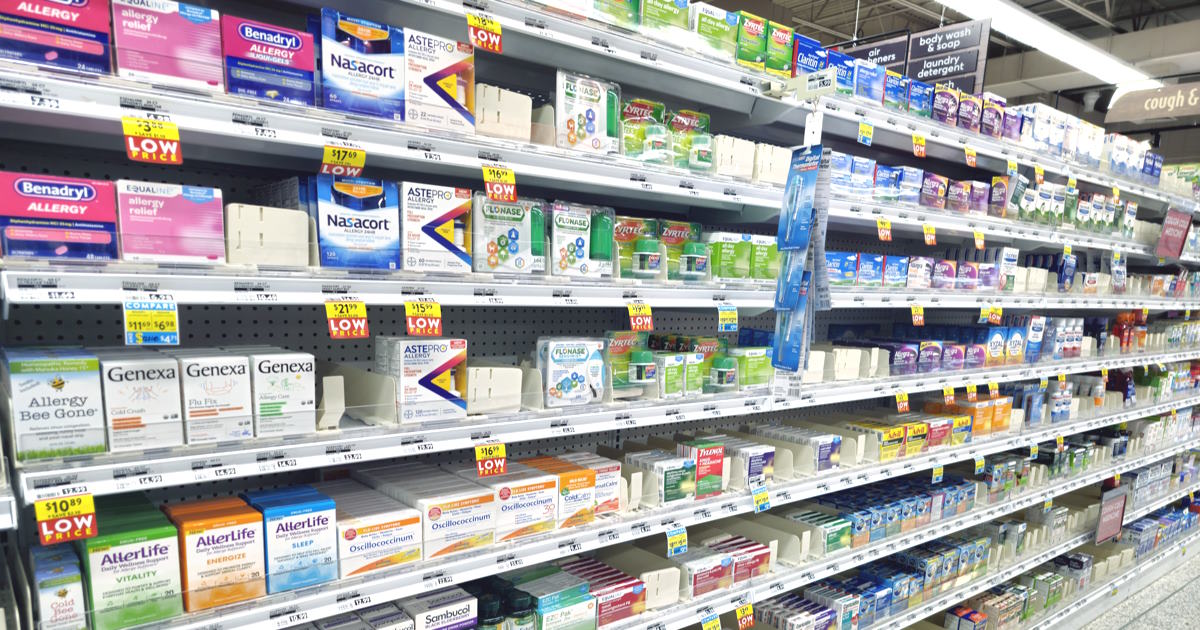
As an Amazon Associate, I may get a commission on qualifying purchases.
Table of Contents
Understanding Food Allergies
Before we dive into the best antihistamines for food allergies, it’s important to understand what causes these reactions in the first place. Food allergies occur when your immune system mistakenly identifies a harmless food protein as a threat and launches an attack. This can cause a range of symptoms, from mild to life-threatening, including:
- Hives
- Swelling of the lips, tongue, or throat
- Difficulty breathing
- Nausea and vomiting
- Diarrhea
- Anaphylaxis (a severe, potentially fatal reaction)
Whether you have a rare food allergy or an allergy on the top 20 food allergies list, If you experience any of these symptoms after eating a particular food, medical professionals advise that it is important to seek medical attention right away.
Snapshot of The Top 3 Best Antihistamines for Food Allergies
The top 3 best antihistamines for food allergies are Zyrtec, Benadryl, and Claritin. Continue reading for a deeper explanation of their rankings.
Zyrtec (cetirizine)
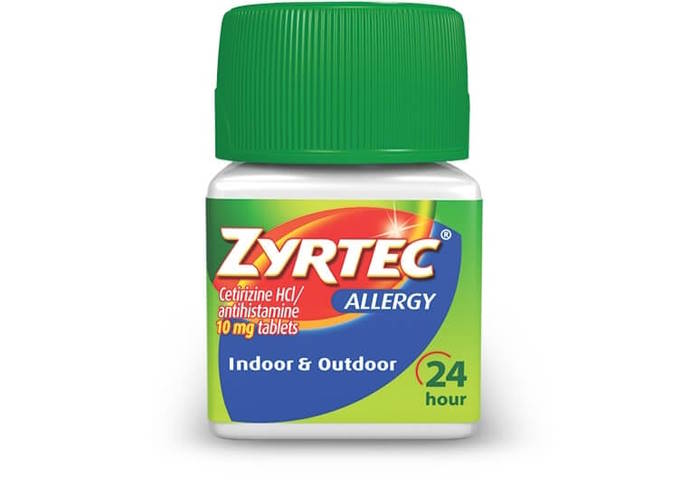
Works fast, and is strong, but can make you a little sleepy. Zyrtec® was studied against Benadryl® and proved to be just as effective for treatment with fewer side effects, and its benefits lasted longer.
You can find cetirizine at any pharmacy over-the-counter, or of course on Amazon (usually the cheapest).
Benadryl (diphenhydramine)
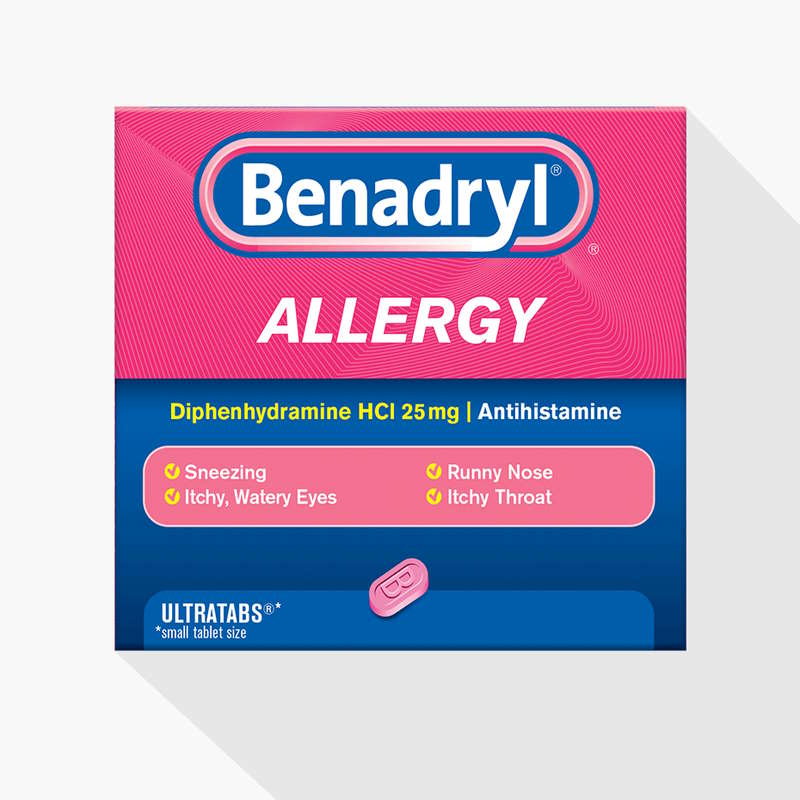
Strong, but it can make you sleepy. Benadryl® is the OG of allergy medications, and can still keep up with the best antihistamines on the market today.
If you do not have Benadryl on hand I recommend grabbing some on Amazon, it’s affordable and works great.
Claritin (loratadine)

Strong, but does not usually make you sleepy. Claritin® takes a little bit longer to work compared to Zyrtec, but also has less of a chance of making you drowsy. I take Claritin and I find that it works best for my allergies. Amazon provides a great price for Claritin.
Are antihistamines effective for food allergies?
Yes, there is some scientific evidence that antihistamines are at least somewhat effective for treating immediate symptoms caused by food allergies. Antihistamines work by blocking the effects of histamine, a chemical that your body releases during an allergic reaction.
Avoiding foods that you are allergic to is the best “treatment” typically recommended by medical professionals. Eating foods you are allergic to can have negative consequences. The good news is that there are other treatment options for food allergies that you should talk with your medical provider about.
Best Antihistamines for Food Allergies
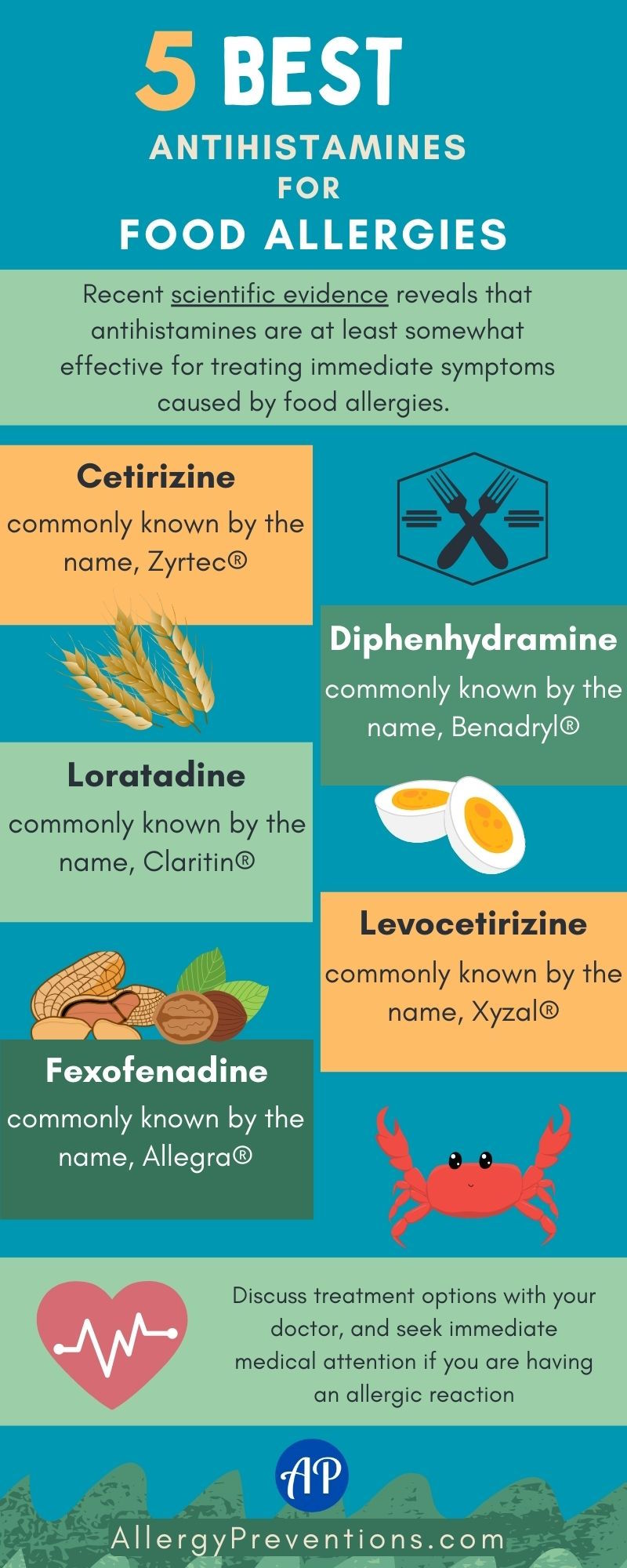
When it comes to choosing the best antihistamine for your food allergy symptoms, there are several factors to consider, including:
- The severity of your symptoms
- Whether you need immediate relief or long-term management
- Any other medications you’re taking
- Any other medical conditions you have
Here is a list of the best antihistamines for food allergies to discuss with your doctor.
1. Zyrtec

Zyrtec®(cetirizine) is considered to be the best overall antihistamine for food allergies. A double-blind randomized study of 70 allergic reactions compared cetirizine versus diphenhydramine, and cetirizine won.
The study concluded that both antihistamines worked the same in the treatment of the symptoms, but the cetirizine benefits lasted longer and caused less drowsiness.
I have taken Zyrtec in the past for my seasonal allergies, and I did not have any side effects, but it was not as powerful as Claritin for me. Since I currently take Claritin I cannot speak on how it helps with food allergies, but I imagine it would help me out with food allergies if I made the switch back.
2. Benadryl

Benadryl® (diphenhydramine) is a first-generation antihistamine that can be very effective at relieving itching, hives, and other allergy symptoms. However, it can also cause drowsiness and other side effects, so it’s not always the best choice if you need to be alert and focused.
I think Benadryl must have been the only option for kids, at least that is what I was on for the majority of my childhood. I can remember being very tired after taking this medication. To this day, it still makes me sleepy.
3. Claritin

Claritin® (loratadine) is a second-generation antihistamine that is available over the counter and packs a punch. An allergy study was conducted between loratadine and fexofenadine and the results showed that loratadine works very fast and provides more symptom relief than fexofenadine.
Claritin is the medication I am currently taking (a few years running), and I have no complaints. It gives me seasonal and food allergy relief without drowsiness.
4. Xyzal
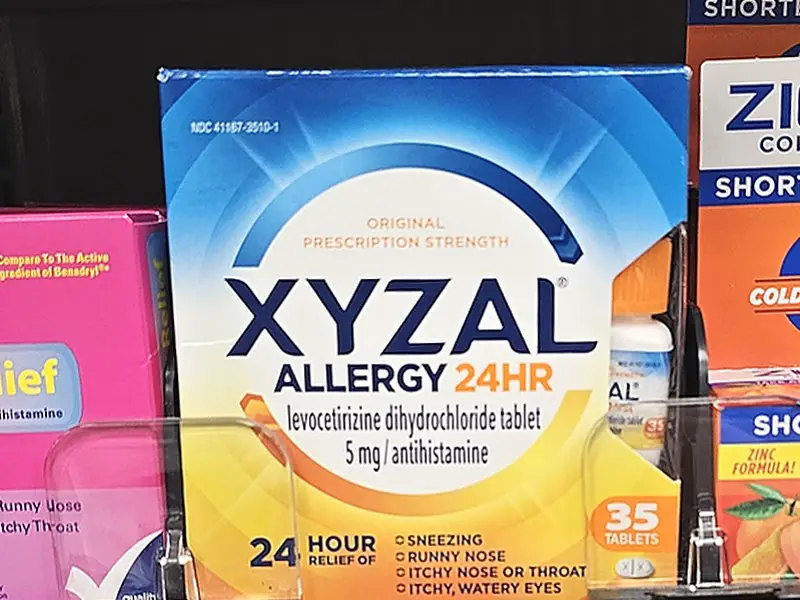
Xyzal® (levocetirizine) is one of the newer antihistamines but shows great allergy relief promise. I did not find any food allergy studies on levocetirizine, but there was a seasonal allergy study that Xyzal rocked. The results proved that levocetirizine is more effective than fexofenadine and provides symptom relief for longer.
I have not personally tried Xyzal, the people I know who do take it are happy with the results. If you have tried everything else, these might be worth a shot.
5. Allegra
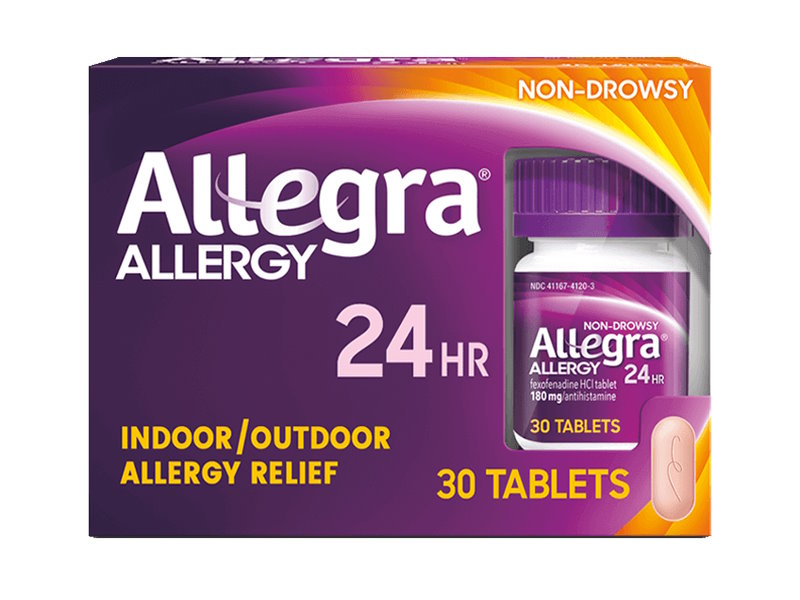
Allegra®(fexofenadine) is a third-generation antihistamine that is available both over the counter and by prescription. It’s generally well-tolerated and can provide relief from a variety of allergy symptoms, including itching, sneezing, runny nose, and watery eyes.
There are not any solid studies on this medication versus food allergies specifically, but it may give you some symptom relief.
Honorable Mentions
Atarax and EpiPen are considered honorable mentions as they may be used as food allergy supporters that your doctor may want to prescribe.
Vistaril
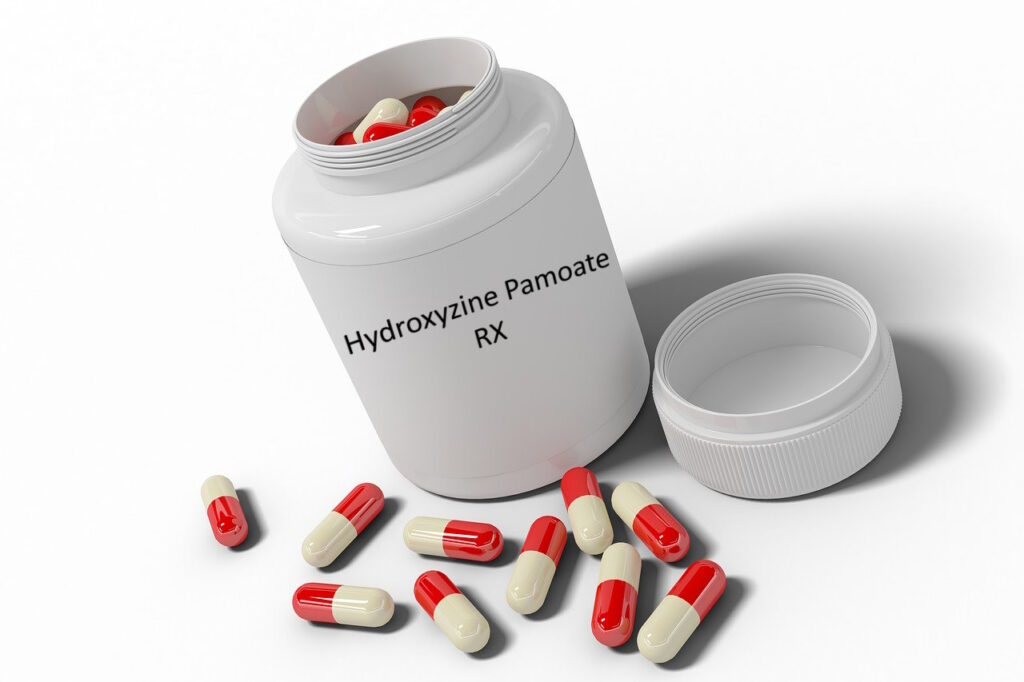
Vistaril® (hydroxyzine pamoate) is typically used for allergies that cause reactions on the skin such as hives or dermatitis but may be an option your doctor would like to discuss.
Hydroxyzine pamoate is only available by prescription, and cannot be purchased over the counter. There is no literature proving how hydroxyzine would perform against food allergies.
EpiPen
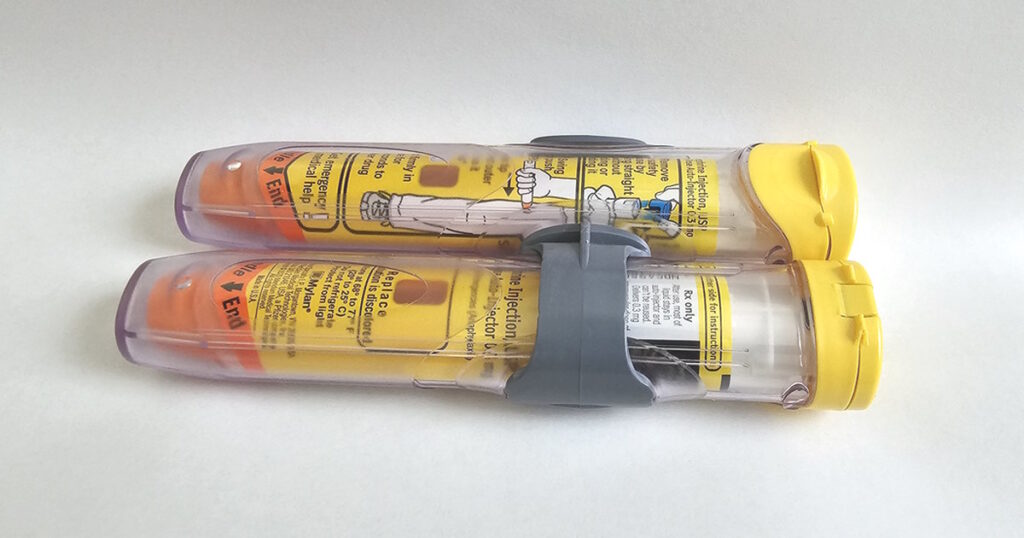
EpiPen® (epinephrine) is not an antihistamine, but it is an important medication for people with severe food allergies. It is used to treat anaphylaxis, a severe, potentially fatal allergic reaction. For my allergies, my doctor has prescribed me an EpiPen. Luckily, I have not had to use it.
Conclusion
Choosing the right antihistamines for food allergies can be a difficult decision, but there are many options available. Keep in mind that I created this list based on the science as well as my personal experiences, so talk with your doctor and determine which medication is best for you.
Looking for other options besides allergy meds? Check out how you can stop allergies immediately, for some helpful pointers.

